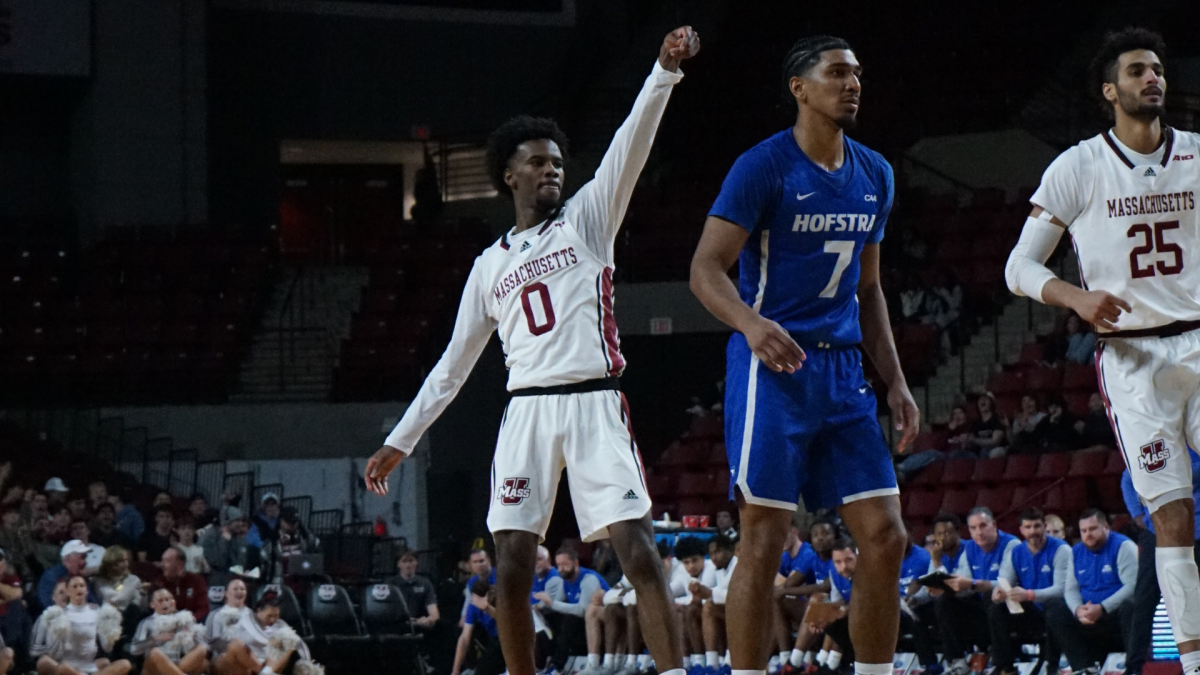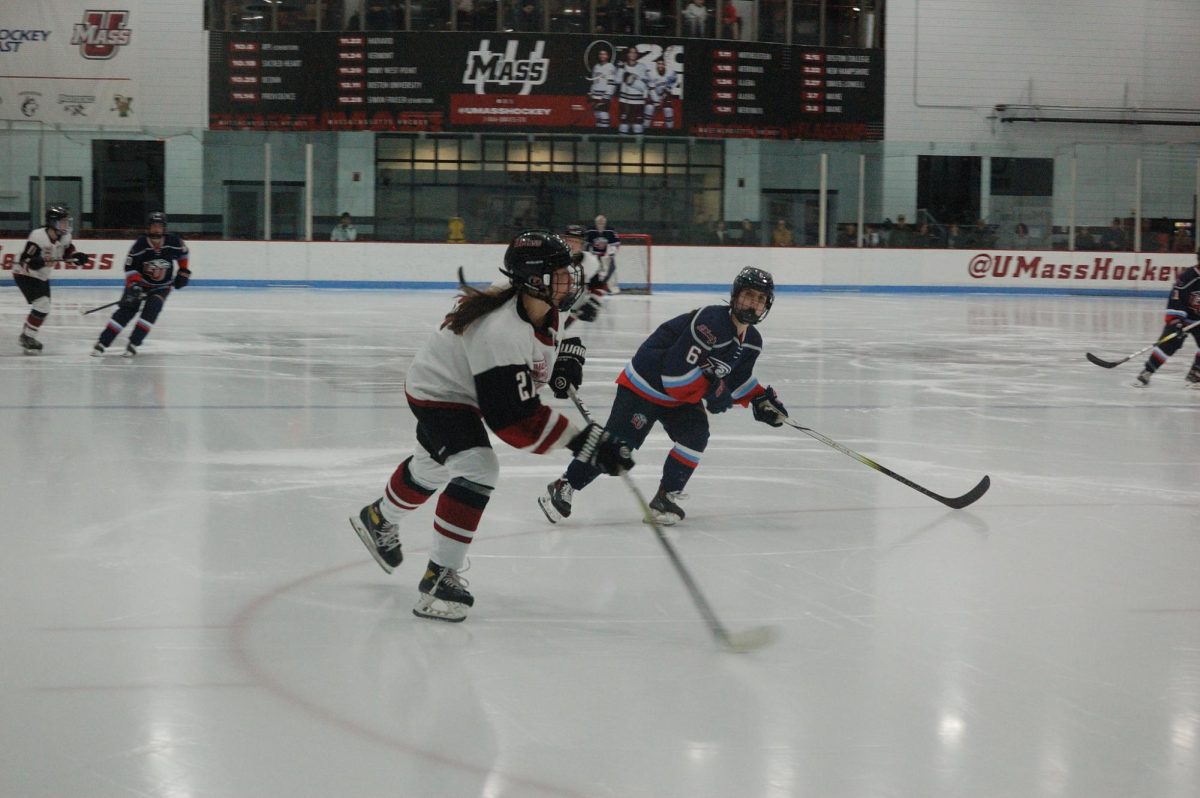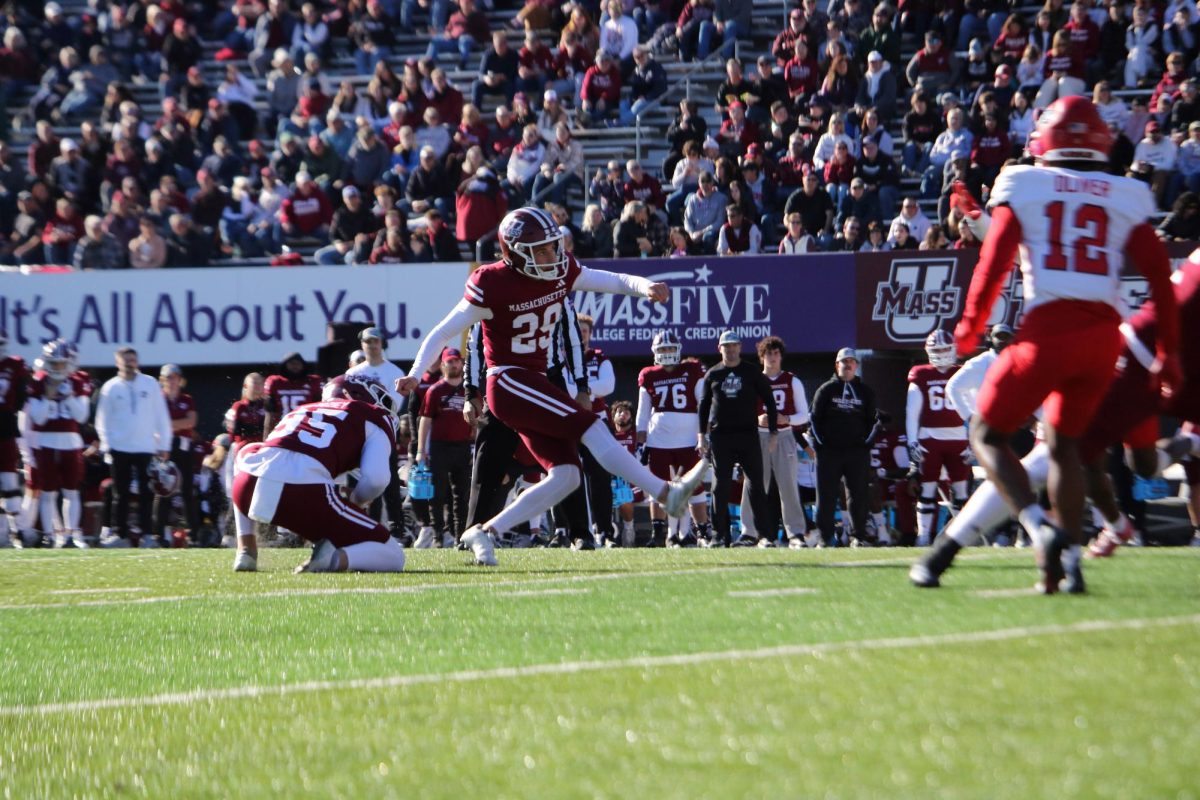
Earlier this semester, my classmates and I were asked to anonymously declare our political affiliations as part of an exercise in a sociology class, the results showing that most us were centrists, with a few liberals and libertarians thrown in. But when it came out that one student in our class identified as a conservative, all the eyes in the room began to uneasily roam as people tried to sniff out the “other.”
In an African-American studies course that I took freshman year, our discussions frequently drifted to the Black Lives Matter movement. Toward the end of the semester, a typically quiet student began making some solid points against the protests, but those points were forgotten once he uttered the phrase “All lives matter.” Every single head in the room immediately shot up, hands flying in the air as a tense chatter broke out.
It goes without saying that the Pioneer Valley is majority liberal. On one database, using student reviews of political leanings on college campuses, the University of Massachusetts was declared the 14th most liberal college in the state. Three of the other five colleges that make up the five-college consortium—Mount Holyoke College, Smith College and Hampshire College—were rated first, third and fifth in the same category, respectively.
As someone who identifies as liberal, this fact hasn’t really impacted my college career. I knew I would never be that kid in class being glared at as I made an unpopular point. I would never get into a disagreement with my friends about politics, because they would always agree with me. The negative feedback I received on the columns I wrote for the Massachusetts Daily Collegian would be minimal, because I was making arguments that a majority of our readers agreed with.
But as the Head Editor of the Opinion and Editorial section at the Collegian, I have a new understanding of the challenges people without the privilege of being in a community with thousands of people who think like them face every day.
When I get a conservative article in my inbox, I know how much the editorial staff will struggle with it. I know how each editor will take special care—consciously or not—to check and double-check each source and word choice. I know the long ethical discussions that will take place, as the editors reflect on whether the argument is flawed or their own personal biases are impeding their understanding of the piece. And more than anything else, I know that the conservative articles that get published will be immediately hit with online backlash from members of our community, nitpicked for errors and flaws in ways that no other pieces are.
The term “liberal bubble” that is frequently used to describe college campuses is a tired phrase, but it’s not entirely inaccurate. My sociology classmate probably would not have admitted to being conservative had the results of the exercise not been anonymous. The quiet student who spoke out against the Black Lives Matter movement was silenced by the class, never participating in discussion again. Recruiting conservative writers for the Collegian has proven to be a near-impossible task, with new writers scared of facing retribution for their unpopular opinions.
Have these people been forcibly silenced? No. But the environment and discourse have become so hostile that the freedom to openly express beliefs is in danger of being limited.
We are so quick to categorize something that we disagree with as “wrong,” that we are turning people with opposing viewpoints into villains instead of contrary thinkers. Our conversations have become one-sided, and on this campus and in our lives, we are content with that.
But the writers of our Constitution wouldn’t be. While our founders were themselves men of privilege, they nevertheless designed a document that today ensures the rights of those who aren’t.
Just look at the First Amendment. The right to “petition the Government for a redress of grievances” is not for those in power, it’s to give power to those who don’t currently have it. The same goes for “the right of the people peaceably to assemble.” The government doesn’t need that right, but average citizens do.
And the freedom of speech is no different. If you are someone who already has the power of the majority supporting your thoughts, opinions and speech, then this amendment, while still protecting you, is not necessarily for you. It is for those who are not protected by the masses and for those who can be silenced, to guarantee that they aren’t. After all, the only way to ensure that our own rights will never be infringed upon is to ensure that no one’s rights are infringed upon – including those people we disagree with or dislike.
In our society of echo chambers and divisive rhetoric, it is easy to forget that people with viewpoints contrary to our own are no more than just that—people with viewpoints contrary to our own. They are not monsters, and they are not stupid; they are just people. People with different values and beliefs, perhaps, but people nonetheless.
And in America, people have the right to speak. They have the right to express unpopular opinions, the right to question and criticize those in power and the right to say things that hurt your feelings, or that hurt mine.
In order for a democracy to function, it needs a variety of voices, it needs dissent and it needs conversation. Our constitution gave us the tools, now we have to make a commitment to see that vision through.
Tess Halpern is the Opinion/Editorial editor and can be reached at [email protected].




















Nitzakhon • Oct 20, 2017 at 8:56 am
@EM:
You’ve noticed that too?
On multiple columns / instances, the Thought Police have – apparently – deemed my comments outside the Overton Window they wish to present to the readership.
Jon • Oct 15, 2017 at 11:55 pm
Funny you publish this now. I tried to write an op ed that was slightly outside the collegians little bubble(I’m a pretty liberal dude myself but seriously ). And your editors rephrased it in a way that really betrayed their bias and intentions and I refused to have it published as was. I tried emailing a higher up editor to discuss it and got nothing in response. Shoot me an email. Becuae,
Arafat • Oct 15, 2017 at 9:03 am
Bravo!
Em • Oct 13, 2017 at 5:07 pm
“Recruiting conservative writers for the Collegian has proven to be a near-impossible task, with new writers scared of facing retribution for their unpopular opinions.”
You have Brad Palumbo, Michael Hout, et al. writing for the Collegian. On the contrary, it doesn’t seem like you’re having an issue in that area.
Your newspaper does, however, not publish some comments. So much for free speech.
Deborah Dunning • Oct 13, 2017 at 6:07 am
Important perspective tgoughtfully presented
Nitzakhon • Oct 12, 2017 at 2:11 pm
I agree, and well written.
In part, the omerta against Conservative views stems from “Krauthammer’s Law” – i.e., “Conservatives think they have better ideas; Liberals think they are better people.”
When you think “I believe X, so I am a good person like the people with whom I associate”, you then easily start to think “Someone who does not think X is not a good person”.